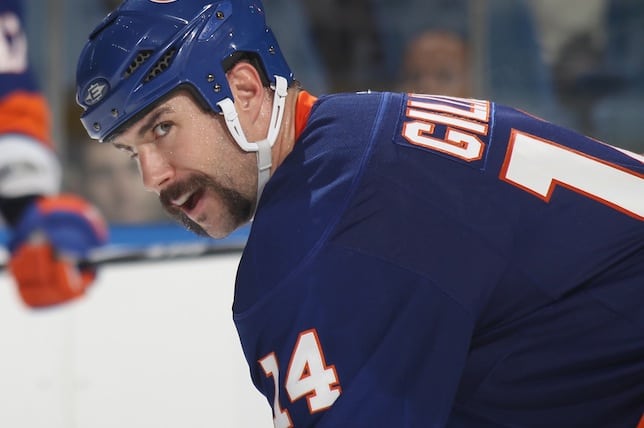
AHL drops 12-game suspension on Trevor Gillies; is it enough?
The AHL suspended Adirondack enforcer Trevor Gillies 12 games for smashing an opponent's head in the ice Friday. But Adam Proteau asks, is that enough to stop him from re-offending?
 AHL drops 12-game suspension on Trevor Gillies; is it enough?
AHL drops 12-game suspension on Trevor Gillies; is it enough?The American Hockey League came down hard on Adirondack Flames forward Trevor Gillies Monday, suspending him 12 games for viciously assaulting Rochester forward William Carrier Friday. But some would argue they didn’t come down hard enough, and that hockey as a whole still has a ways to go to give real teeth to their punishments and truly dissuade players from becoming repeat offenders like Gillies, who was suspended twice (for a total of 19 games) in his justifiably brief NHL career (57 games from 2009-11). But that doesn’t make it any less stomach churning to watch him snap and smash Carrier’s head into the ice. See for yourself:
[embed]https://www.youtube.com/watch?v=CzBiCtZlm5M[/embed]
Gillies apologized for his actions, but these are now three separate incidents in which he was a genuine danger to his opponents. Here are the examples of what got him suspended in the NHL:
first, his attack on Eric Tangradi in February of 2011, in which he elbowed the Penguins forward and then taunted him from the boards.
[embed]https://www.youtube.com/watch?v=QKYXYRT-pyo[/embed]
That reprehensible behavior got him a nine-game suspension. And to show he'd learned his lesson in his first game back after it ended, Gillies did this to Minnesota’s Cal Clutterbuck:
[embed]https://www.youtube.com/watch?v=LgfOpSyqo9M[/embed]
The 35-year-old Gillies won’t be an active player for much longer, but he has already had more than one second chance after doing something heinous and indefensible. A lifetime suspension (which nobody is proposing, by the way) wouldn’t do him much at this point, but we shouldn’t lose focus on the fact that, if the gatekeepers of professional hockey – both the team owners and the players’ associations themselves – were willing to suspend players such as Gillies for longer, their degree of recidivism would be reduced significantly, and those who actually have something to contribute beyond intimidation would enjoy longer playing careers and better lives in retirement.
You can never reduce to zero the possibility someone will lose it as Gillies has in the games to come. But you can send a warning shot across the bow and into the subconscious of the next Gillies making his way through the system. The way you do that is with meaningful suspensions that will financially penalize players for allowing their competitive ids to take over for their better judgement. If the NHL and AHL truly wish to rid the sports of one-dimensional menaces, this is what they need to be striving for.